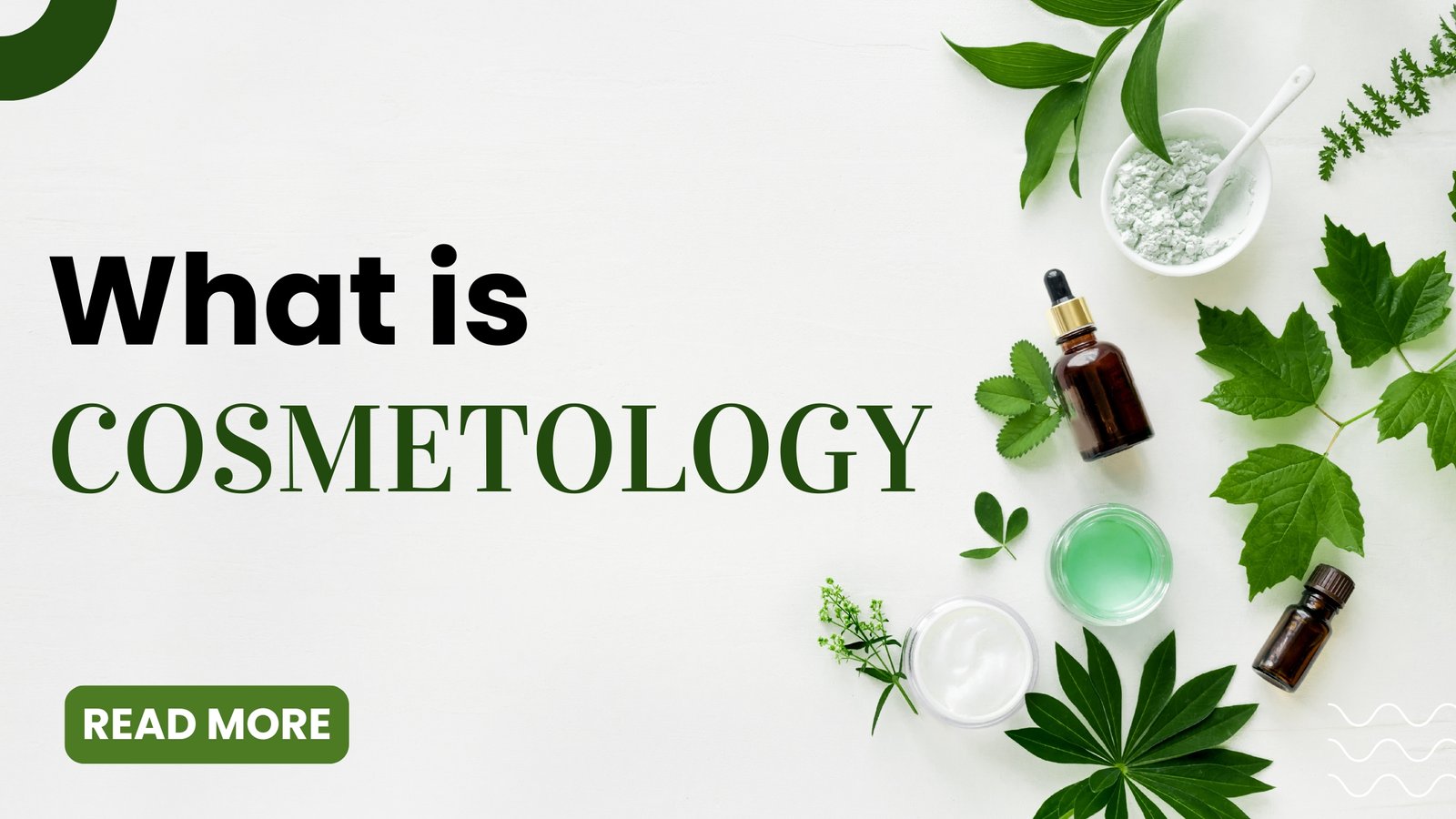When you hear the word cosmetology, what comes to mind? For many people, it’s hair stylists, makeup artists, and skin care specialists.
But cosmetology goes much deeper than a haircut or a manicure. It is an entire field of study and practice dedicated to enhancing appearance, improving confidence, and even maintaining health through specialized beauty treatments.
Cosmetology is not just about vanity—it’s a blend of art, science, and human connection. In this blog, we’ll explore what cosmetology is, its history, areas of specialization, education and career opportunities, and why it remains one of the most dynamic and rewarding professions today.
Defining Cosmetology
At its core, cosmetology is the study and application of beauty treatments. The word comes from the Greek term kosmetikos, meaning “skilled in adornment.”
Cosmetologists are trained professionals who provide a wide range of services, including:
-
Hair cutting, coloring, and styling
-
Skin care treatments such as facials and exfoliation
-
Nail services like manicures, pedicures, and nail art
-
Makeup application for everyday looks, special events, or editorial work
-
Advice on personal grooming, product use, and overall beauty care
Unlike dermatology, which is a medical specialty focused on skin health, cosmetology emphasizes aesthetic enhancement. However, a strong foundation in science, anatomy, and hygiene is essential for cosmetologists, ensuring treatments are safe and effective.
A Brief History of Cosmetology
Cosmetology has been around for thousands of years, evolving with culture, fashion, and technology.
-
Ancient Egypt (circa 4000 BCE): Egyptians pioneered beauty rituals. Cleopatra was famous for her kohl-lined eyes, henna-stained nails, and milk baths. Perfumes, oils, and elaborate wigs were common.
-
Ancient Greece and Rome: Both civilizations valued grooming and aesthetics. Wealthy Romans visited public bathhouses where hair removal, massages, and skincare were part of daily life.
-
Middle Ages & Renaissance: Despite some religious restrictions, cosmetics flourished. Pale skin became fashionable among European nobility, often achieved with dangerous lead-based powders.
-
19th & 20th Century: The Industrial Revolution and mass production brought beauty products to the general public. Iconic names like Max Factor, Estée Lauder, and Revlon shaped modern cosmetology.
-
Today: Cosmetology is a multi-billion-dollar global industry, combining artistry with cutting-edge technology such as laser treatments, permanent makeup, and advanced hair color techniques.
This historical evolution shows that cosmetology is more than a trend—it’s deeply woven into human culture.
The Main Branches of Cosmetology
Cosmetology is a broad field that covers several specialties. Here are the major areas:
1. Hair Care and Styling
Hair is often the most visible part of personal style. Cosmetologists specializing in hair care master:
-
Haircutting and layering techniques
-
Chemical treatments like coloring, perming, and relaxing
-
Styling for everyday wear or special events
-
Hair extensions, braiding, and wig application
-
Scalp treatments to promote hair health
A skilled hairstylist doesn’t just change how someone looks—they can transform how someone feels.
2. Skin Care (Esthetics)
Skin care specialists, also called estheticians, focus on treatments that enhance skin health and appearance. Services may include:
-
Facials and exfoliation
-
Acne management
-
Anti-aging treatments like microdermabrasion
-
Chemical peels
-
Hair removal (waxing, threading, sugaring)
-
Spa therapies like masks and massages
Esthetics is both relaxing and results-driven, often blending luxury with medical-grade technology.
3. Nail Technology
Nail technicians provide services that beautify hands and feet, such as:
-
Manicures and pedicures
-
Nail art and design
-
Gel and acrylic extensions
-
Cuticle care and strengthening treatments
Nails are a canvas for creativity, making this branch highly popular among younger generations.
4. Makeup Artistry
Makeup is a powerful form of self-expression and transformation. Makeup artists work in:
-
Beauty salons and spas
-
Bridal and special event makeup
-
Film, television, and theater (special effects makeup)
-
Editorial and fashion industries
-
Social media and influencer platforms
Makeup artistry has exploded thanks to YouTube and Instagram, creating a new generation of self-taught beauty gurus.
5. Other Specialized Fields
-
Barbering – Cutting, grooming, and shaving, often with an emphasis on men’s styles.
-
Permanent Makeup / Microblading – Semi-permanent cosmetic tattooing for brows, lips, and eyeliner.
-
Cosmetology Education – Training the next generation of beauty professionals.
-
Beauty Product Development – Creating cosmetics, skincare, or haircare lines.
Education and Licensing in Cosmetology
Cosmetology is a regulated profession in most countries. This ensures that practitioners are trained in hygiene, safety, and professional standards.
Typical Path to Becoming a Cosmetologist:
-
High School Diploma or Equivalent – A basic requirement to enroll in cosmetology school.
-
Cosmetology Program – These programs range from 9 months to 2 years, depending on the country and specialization. They cover theory (science of hair, skin, nails) and practical skills.
-
State or National Licensing Exam – In places like the United States, each state requires a licensing exam to practice legally.
-
Continuing Education – Many cosmetologists attend workshops and advanced training to keep up with evolving trends.
The investment in training pays off, as licensed cosmetologists can work in salons, spas, resorts, cruise ships, media industries, or even start their own businesses.
Career Opportunities in Cosmetology
One of the most attractive aspects of cosmetology is the diversity of career paths. Some possible opportunities include:
-
Salon Professional: Hairstylist, colorist, barber, or nail technician.
-
Spa Esthetician: Specializing in facials, massages, and luxury treatments.
-
Freelance Makeup Artist: Working on weddings, photo shoots, or film sets.
-
Brand Ambassador / Influencer: Partnering with beauty companies to promote products.
-
Cosmetology Educator: Teaching in schools or conducting professional workshops.
-
Entrepreneur: Owning a salon, spa, or beauty brand.
The U.S. Bureau of Labor Statistics projects steady growth in cosmetology jobs, reflecting strong consumer demand for personal care services.
The Science Behind Cosmetology
Although cosmetology appears to be mainly artistic, it also requires a solid foundation in science. Cosmetologists must understand:
-
Anatomy and Physiology: How hair and skin function at a biological level.
-
Chemistry: How products like dyes, relaxers, and peels interact with hair and skin.
-
Infection Control: Sanitization and sterilization to ensure client safety.
-
Dermatology Basics: Recognizing conditions that should be referred to medical professionals.
This scientific knowledge ensures cosmetologists provide safe and effective services, protecting both clients and themselves.
Why Cosmetology Matters
Some people dismiss beauty as superficial, but cosmetology plays a significant role in society. Here’s why it matters:
-
Boosts Confidence: A new haircut or glowing skin can transform how someone feels about themselves.
-
Encourages Self-Care: Visiting a salon or spa provides relaxation and stress relief.
-
Supports Creativity: Cosmetology blends artistry with technique, offering endless ways to innovate.
-
Drives Economic Growth: The beauty industry generates billions annually and provides jobs worldwide.
-
Cultural Expression: Hairstyles, makeup, and nails often carry cultural and social significance.
In short, cosmetology is about much more than appearance—it’s about empowerment, wellness, and identity.
The Future of Cosmetology
Like every industry, cosmetology is evolving with technology and changing consumer values. Some exciting trends shaping the future include:
-
Sustainable Beauty: Eco-friendly products, cruelty-free brands, and zero-waste salons.
-
Technology Integration: Virtual try-on apps, AI-powered skin analysis, and 3D-printed makeup.
-
Advanced Treatments: Non-invasive skin rejuvenation, scalp micro-pigmentation, and hair restoration.
-
Inclusivity and Diversity: Beauty standards are broadening to embrace all skin tones, hair textures, and gender identities.
-
Global Influence: Social media allows trends from one culture to spread worldwide instantly.
Cosmetology will always adapt to human needs, proving its resilience and relevance.
Conclusion
So, what is cosmetology? It is the art and science of beauty care, encompassing hair, skin, nails, and makeup. Rooted in history but constantly innovating, cosmetology is more than a career—it’s a passion that combines creativity, technical skill, and human connection.
For clients, cosmetology is about self-expression, confidence, and well-being. For professionals, it offers a fulfilling path with endless opportunities for growth.
Whether you’re considering a career in the field, or simply appreciate the artistry behind your favorite salon or spa treatments, understanding cosmetology reveals just how powerful beauty truly is.







